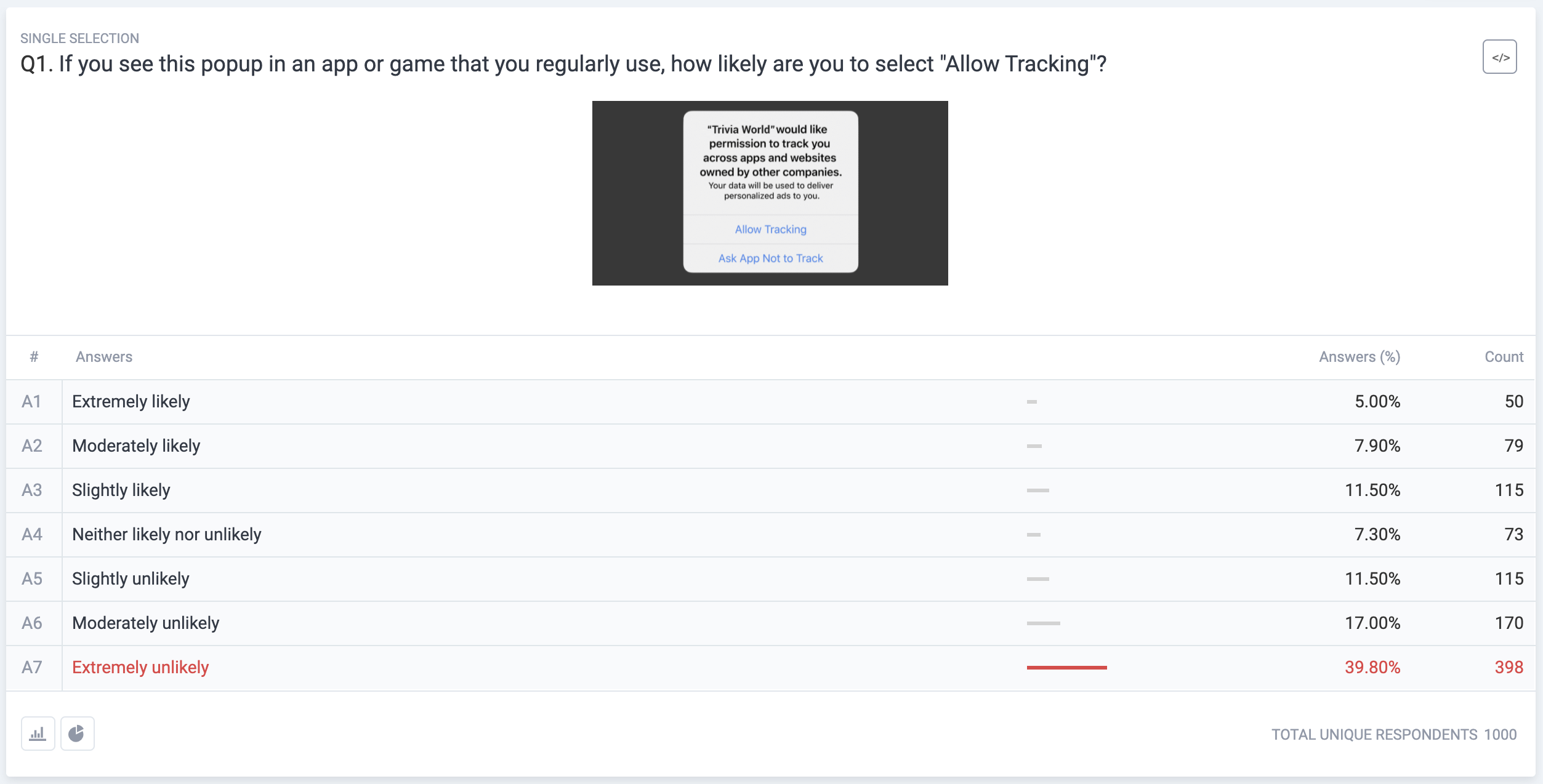Nearly 70% of iOS and Android users will deny tracking permissions if they are requested in-app to opt-in

Last week, at the Worldwide Developers Conference (WWDC), Apple announced some new privacy and security features for iOS. With the new changes publishers will be required to provide information about their app’s data collection practices and also explicitly ask their users for their permission to track them, across apps and websites owned by other companies.This is a major change for the industry, since so far, users were required to opt-out if they wanted from sharing their data and identifiers with third party networks. Now, with the new changes, users will have to explicitly opt-in within their apps to allow tracking or sharing of their data.
The upcoming changes will make it harder for advertisers and marketers to track and target users across apps, creating a level of uncertainty on how that industry will work from now on. The changes are expected to improve transparency on users’ privacy, but they will also have an impact on the current app’s economy and how apps monetize. Some of the most important players in that space such as ad networks and attribution networks will be immediately affected.
The big question is how will iOS users react to the latest changes once the new privacy features start rolling out later this year?
Very few believe that users will opt in to share their data with third parties or allow tracking of them, especially with the way that Apple proposes to communicate that to the users.
As the mobile apps landscape becomes more unified on how privacy is handled, those changes could also come to Android soon. Is there any differentiation on how Android users would react in similar changes around privacy?
Pollfish ran two studies of 1000 respondents each in the US, one on iOS and one on Android to measure how iOS and Android users would react to the upcoming privacy changes.
68.3% of iOS and 67.5% of Android users will likely deny tracking permissions if they are requested in-app to opt-in.
There is an active conversation in the industry, if app owners would be allowed to incentivize users with some sort of virtual goods, in exchange for giving permission to track them. In the same surveys, both iOS and Android users were asked what they would do in that scenario and it seems that around 15% of the users (14.2% of iOS and 14.9% of Android users) would change their mind.
38.6% of iOS and 38.1% of Android users would potentially allow themselves to be tracked, if there was some virtual reward in exchange.
In the current permission popup suggested by Apple, the app owners can add a small amount of text in the description, to explain the reasoning behind requesting the tracking permission. In the surveys, users were asked if they would change their preference, if they were to receive a proper explanation from the app owners, prior or within the popup. Around 22% of the users (20.4% of iOS and 24% of Android users) would potentially change their preference.
44.8% of iOS and 47.2% of Android users would potentially allow themselves to be tracked, if app owners were to give them proper reasoning in advance.
From respondents participating in the surveys, 52.5% on iOS did not know that they could Limit Ad Tracking at the moment, in their iPhone’s settings area. Of those, 42.43% have the option enabled and 56.6% of them stated that they have limited tracking enabled due to privacy concerns.
In a similar question to Android users, 42.6% were not aware of the option to Opt out from interest based ads and from those that knew that setting, 51.27% have already opted out. 46.41% stated that they opted out due to privacy concerns.
To conclude, upcoming privacy changes in iOS are about to make a big impact on how apps monetize their audience and how advertising and attribution networks work. The study showed that a large proportion of the users will not allow themselves to be tracked, a crucial step in effectively running and attributing ad campaigns in the apps space at the moment. Similar findings were also revealed with Android users. Privacy seems to be a key concern among users in the mobile space and by providing them with more transparency and choices, seems to change the current landscape dramatically.
Do you want to distribute your survey? Pollfish offers you access to millions of targeted consumers to get survey responses from $1 per complete. Launch your survey today.
Global GSK Shingles Survey Insights
Original Insights,The Pollfish Blog
February 24, 2024
Shingles misconceptions: new global survey commissioned and funded by GSK highlights widespread…
B2B Sales Emails: Are they Effective or a Nuisance?
Original Insights,The Pollfish Blog
September 6, 2022
Are B2B sales emails a thorn in your side? Do they drive you crazy? Virtually all white-collar…

